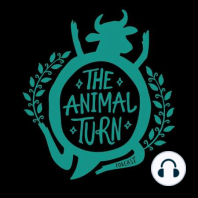82 min listen
S5E4: Epidemiological dividual with Christos Lynteris
FromThe Animal Turn
ratings:
Length:
72 minutes
Released:
Nov 14, 2022
Format:
Podcast episode
Description
Claudia talks to Christos Lynteris, an anthropologist with a long history of researching some of the interconnections between animals and disease. In this episode they focus on rats and the third plague pandemic highlighting how rats went from being understood as in relation to others to being cemented as a vilified species in the spread of disease. Date Recorded: 29 October 2022 Christos Lynteris is Professor of Medical Anthropology at the University of St Andrews. His research focuses on the anthropological and historical examination of epidemics and has pioneered the field of the anthropological study of zoonotic diseases. His most recent book is Visual Plague: The Emergence of Epidemic Photography (MIT Press, 2022). He was also a co-author of Sulphuric Utopias: A History of Maritime Fumigation and co-editor of Plague and the City. He is also the leader of the project “The Global War Against the Rat and the Epistemic Emergence of Zoonosis” which you can read more about here. Connect with Christos on Twitter (@VisualPlague) or via the St Andrew’s website (here). Featured: Visual Plague: The Emergence of Epidemic Photography by Christos Lynteris “Scurrying seafarers: shipboard rats, plague, and the land/sea border” by Jules Skotnes-BrownSulfuric Utopias: A History of Maritime Fumigation by Lukas Engelmann and Christos Lynteris Mahamari Plague: Rats, Colonial Medicine and Indiegnous Knowledge in Kumaon and Garwal, India by Christos LynterisThe Pasteurization of France by Bruno Latour Animal Highlight: Mosquitos - In this animal highlight Amanda focuses on mosquitoes. Arguably one of the most vilified animals when it comes to the spread of disease, Amanda tries instead to reflect on some of their sensory experiences of these dynamic creatures.The Animal Turn is part of the iROAR, an Animals Podcasting Network and can also be found on A.P.P.L.E, Twitter, and Instagram Thank you to Animals in Philosophy, Politics, Law and Ethics (A.P.P.L.E) for sponsoring this podcast; the Biosecurities and Urban Governance Research Collective for sponsoring this season; Gordon Clarke (Instagram: @_con_sol_) for the bed music; Jeremy John for the logo; AmandA.P.P.L.E Animals in Philosophy, Politics, Law and Ethics (A.P.P.L.E)Biosecurities Research Collective The Biosecurities and Urban Governance Research brings together scholars interested in biosecurity.
Released:
Nov 14, 2022
Format:
Podcast episode
Titles in the series (74)
S1E1: Animal Rights with Will Kymlicka by The Animal Turn
